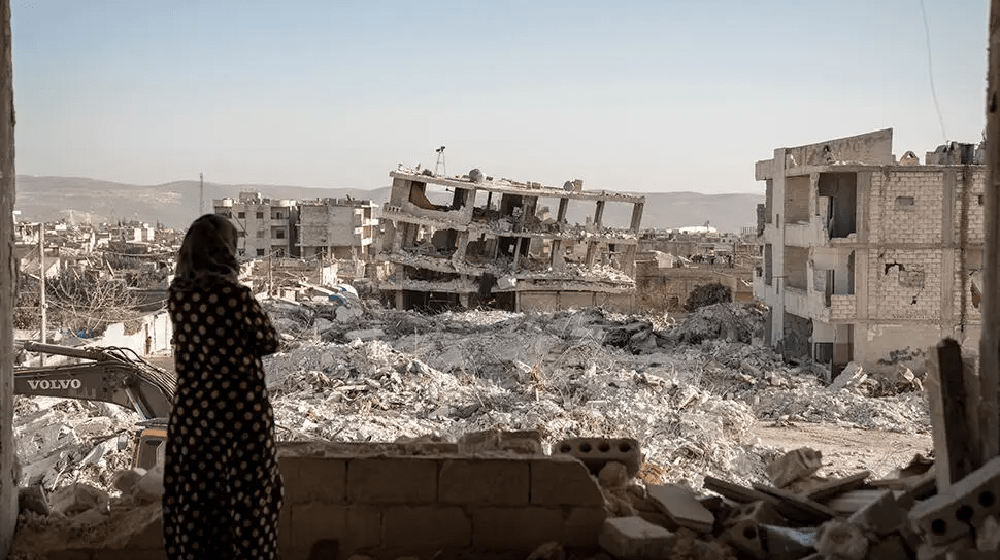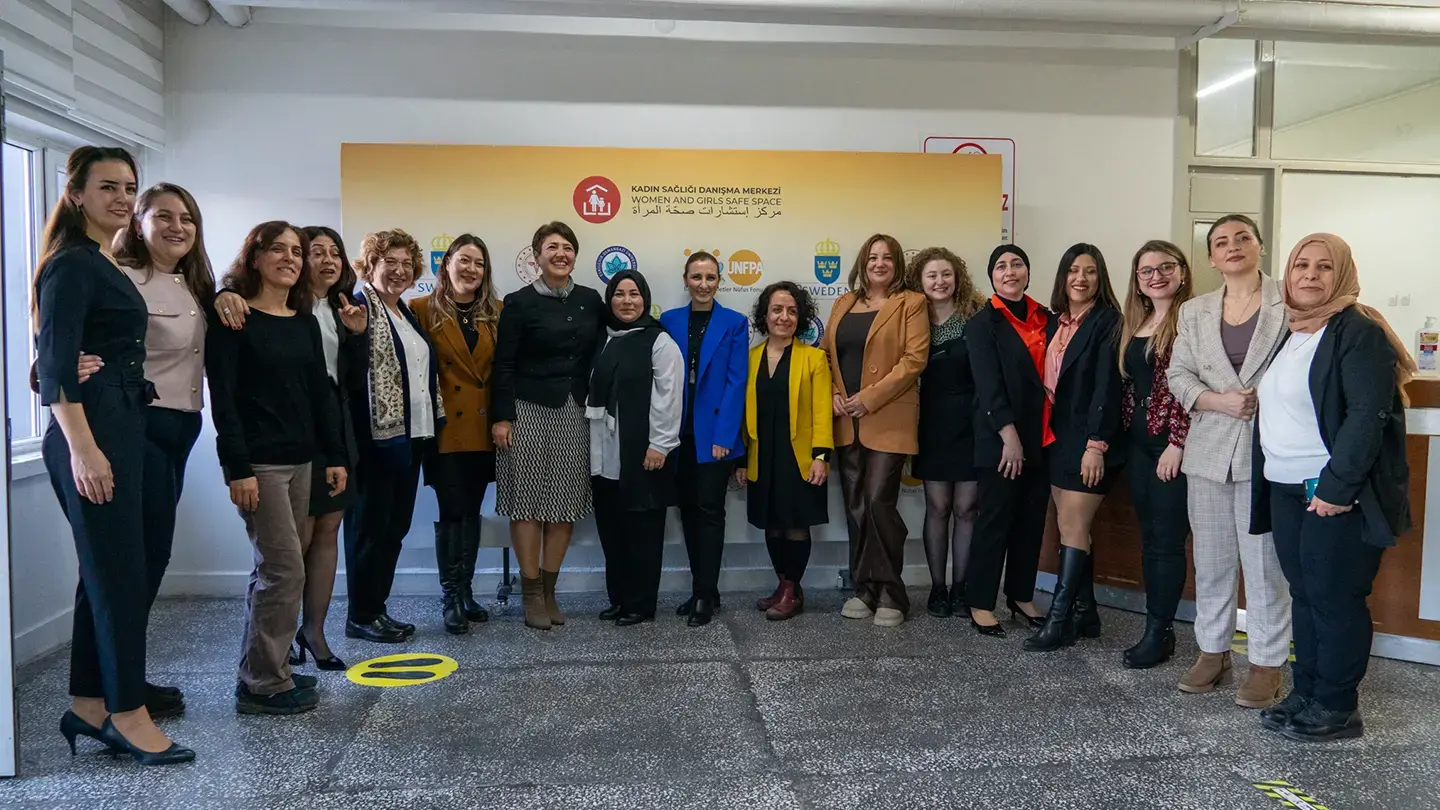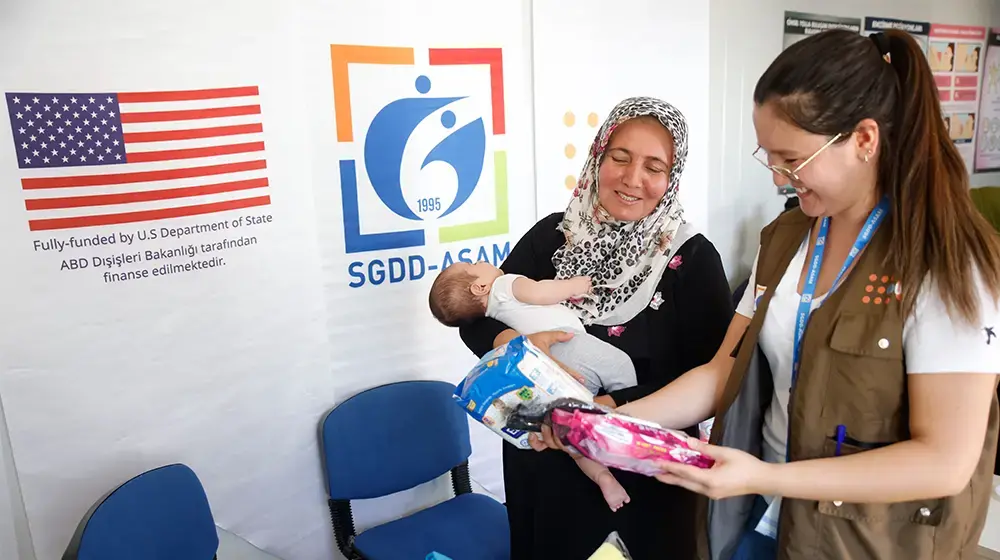“We suddenly woke up to the sound of the earthquake. My children had passed away in their beds, and my grandchildren were trapped under rubble,” says Kıymet.
“I was eight months pregnant. I was so scared. We couldn't stand up, our building was shaking so badly,” says Yonca.
“I woke up to realize that I lost everything in one minute – no home, no clothes, no money, nothing at all,” says Om Mohamed.
The moment of 4.17 a.m. on 6 February 2023 will be etched forever in the minds of millions of people across Türkiye and Syria. It’s when the first of two devastating earthquakes shook the region, with the second coming nine hours later. Thousands of aftershocks arrived in the weeks that followed.
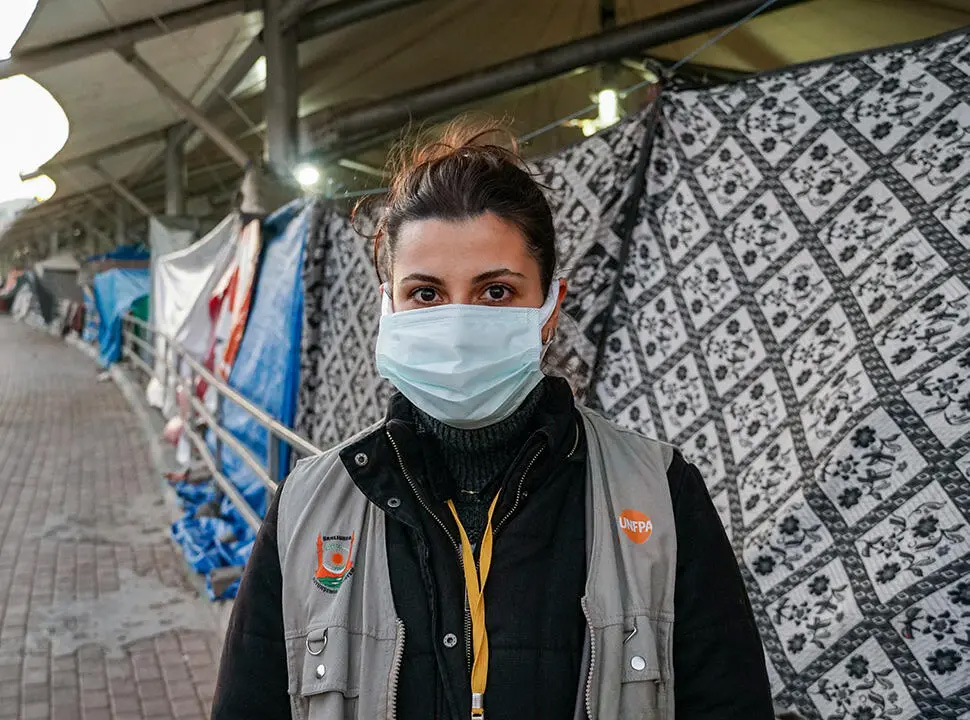
As the scale of the disaster registered around the world, UNFPA launched an emergency response along with its partners.
The goal: to meet the immediate needs of women and girls in the aftermath of the crisis and to ensure the continuation of essential sexual and reproductive health services, including access to safe deliveries and contraception, as well as to protect displaced women and girls from abuse and violence.
Since the onset of this emergency, UNFPA has supported close to 500,000 people in affected areas.
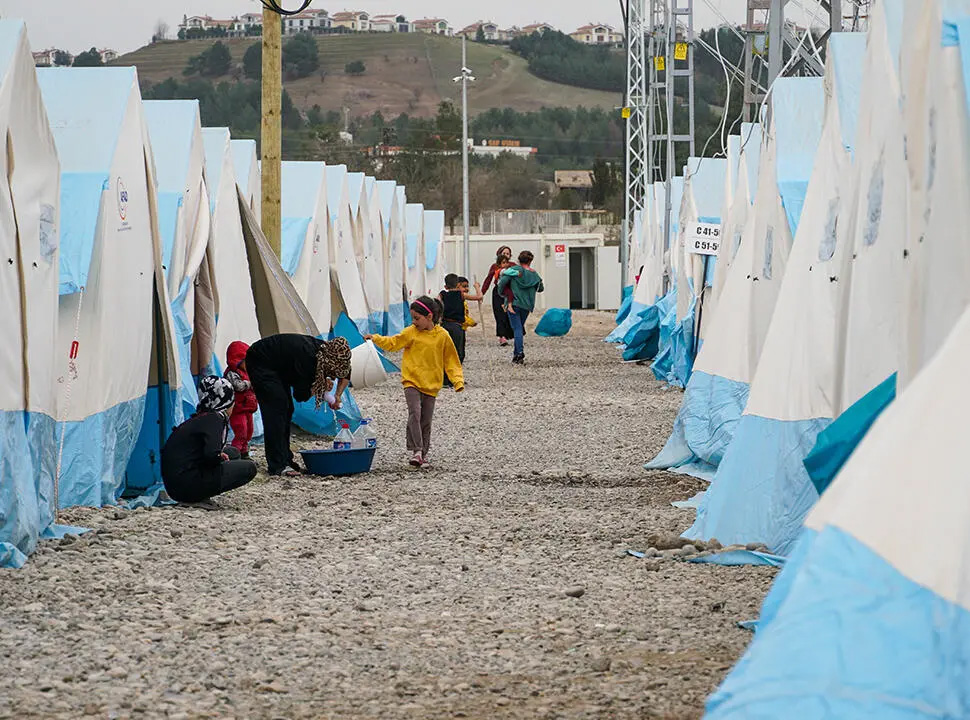
Three months on, the needs of women and girls remain stark.
Some 2.4 million earthquake survivors continue to live in camp settings in Türkiye, and some 1.9 million people in northwest Syria continue to live in camps or self-settled sites in dire conditions.
For millions of people, recovery is not happening quickly enough.
At this crucial stage, investment needs to be not only sustained, but ramped up. A protracted recovery will increase risks for women and girls as well as require more funds.
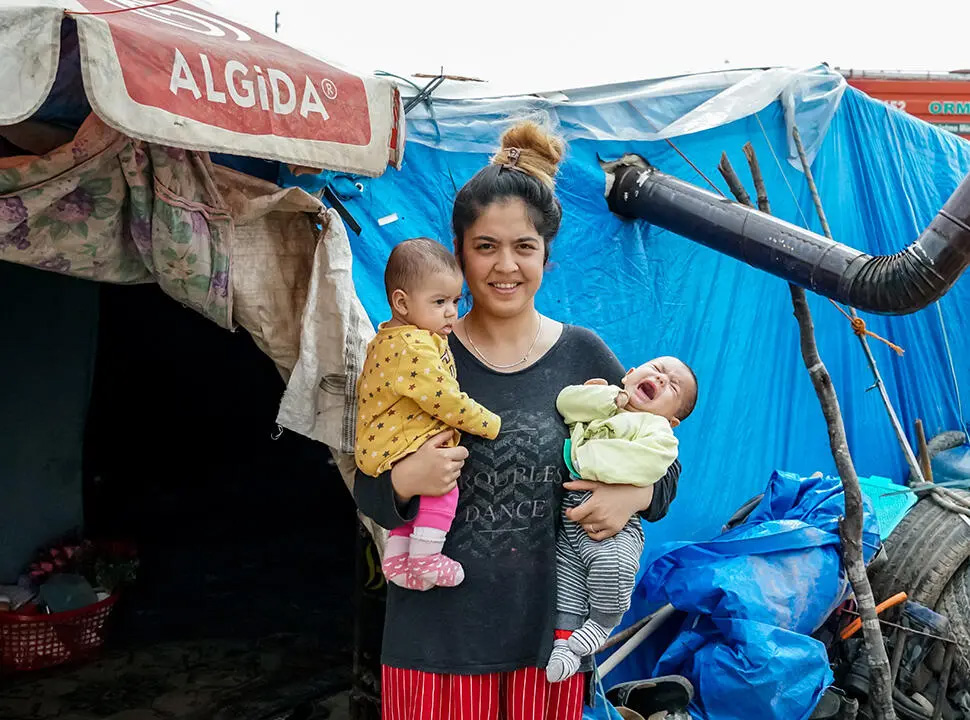
Lale, 22, is living with her family in a camp in Hatay, Türkiye. While she continues to wait for a tent of her own, she sleeps in a makeshift structure with her parents.
“We ran out barefoot in the rain; the babies had no jacket, no blanket,” says Lale, whose twins are six months old. “I have nothing left.”
Lale has received dignity and maternity kits with essential supplies but is still frequently running out of diapers, as well as food.
“I go to bed half full, half hungry, with my babies. We've been out in the rain too long.”
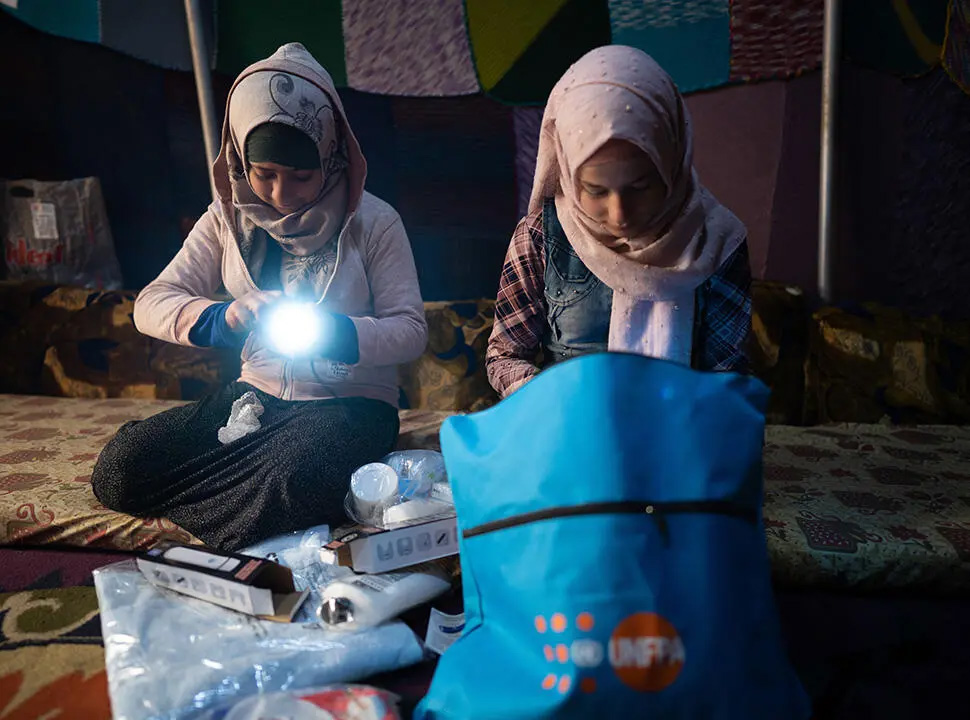
For women and girls staying in camps, simply using the washroom can be a source of distress.
Many settlements lack adequate toilets and hygiene facilities. Adding to the problem, it can be difficult to make a bathroom trip after dark, when there is limited or no electricity.
Initially displaced from their hometown due to conflict, Salwa, 14, and Kholoud, 13, have lived for three years at the AlSekka camp in Idlib, Syria – an area affected by the earthquakes.
The two friends received dignity kits – which include supplies such as hygiene products and torches – provided by UNFPA partner Ihsan Relief and Development. “These things help us in maintaining personal hygiene,” says Salwa.
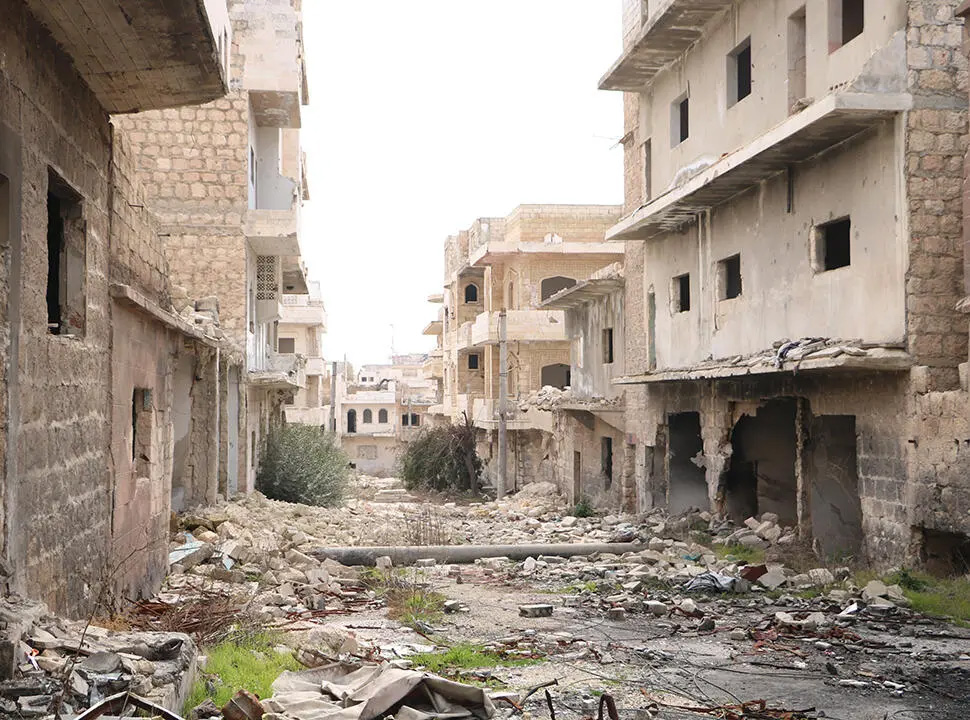
In north-west Syria, the earthquakes are a crisis on top of a crisis.
After 12 years of conflict and human rights violations, people are living under untold strain. For many people uprooted by the earthquakes, this is yet another displacement.
“During the aftershocks, people were asking, ‘Is it a missile or another earthquake?’ If it was a mortar attack, people needed to go to the ground floor or basement; if it’s an earthquake, they needed to get out. People didn’t know what to do,” says Kinda Katranji, Communications Analyst in Syria who heard directly from women and girls affected.
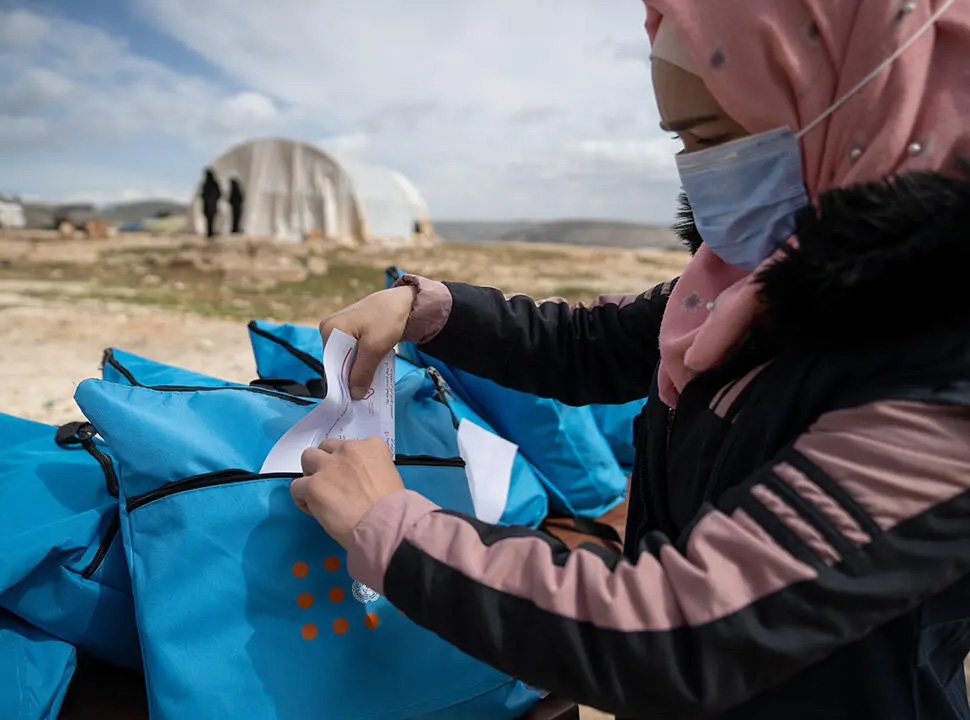
Sex, periods and births do not stop during a crisis.
UNFPA has distributed tens of thousands of dignity kits and maternity kits since the onset of the crisis to women and girls in cities as well as in harder-to-reach rural areas.
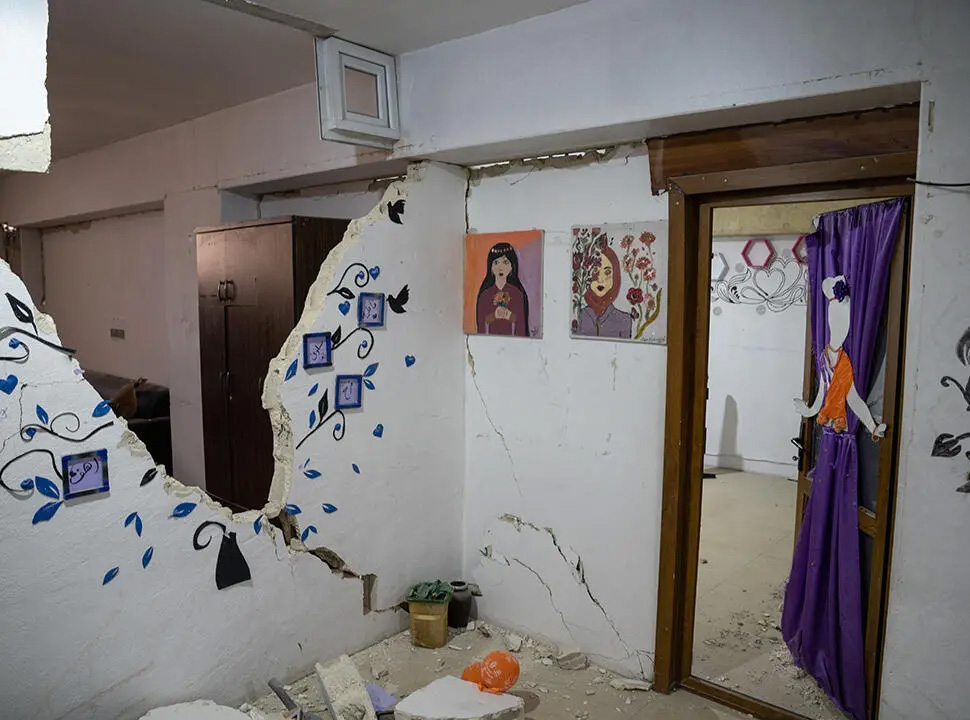
Reports of gender-based violence, exploitation, abuse, child marriage and forced marriage have all increased following the earthquakes, at a time when services are overstretched.
In Syria, many safe spaces were damaged, like this one in Suran. So the teams went mobile, visiting women and girls at home and in temporary camps, to assess and support both psychological and practical needs.
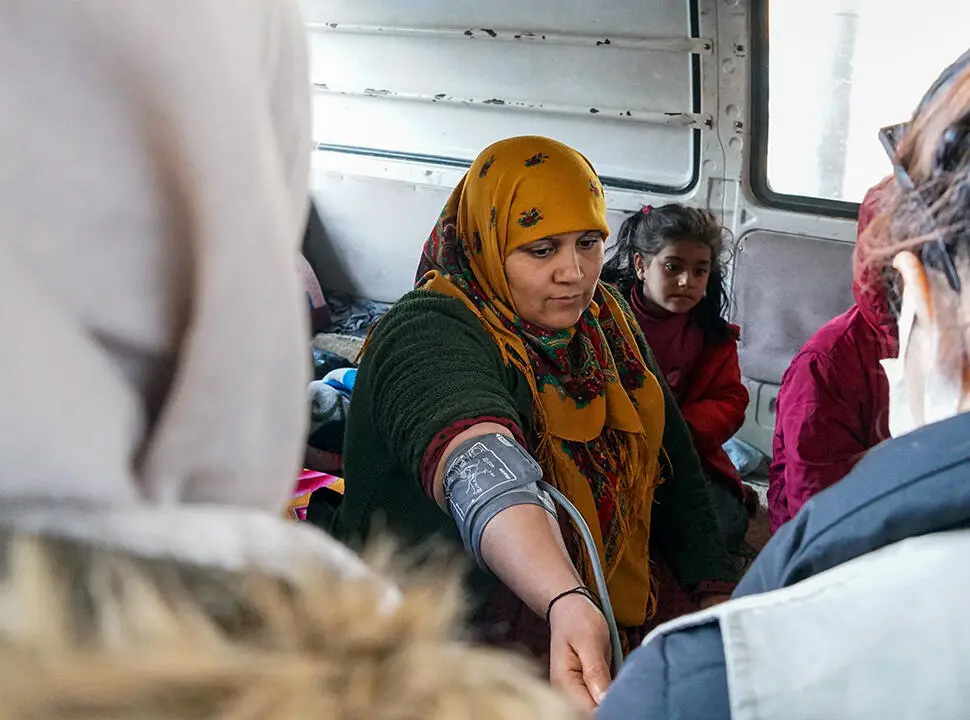
UNFPA supports 52 safe spaces for women and girls across Syria, along with a helpline, as well as 23 safe spaces in Türkiye.
Hayfem and her husband and five children are Syrian refugees living in Şanlıurfa, Türkiye. They are sheltering in their vehicle, which they have parked at an outdoor bazaar for safety, along with other families.
A team dedicated to supporting migrant women and young people has mobilized to meet people’s needs following the earthquakes. The team includes psychologists, nurses and social workers. Thanks to the US government for their financial support.
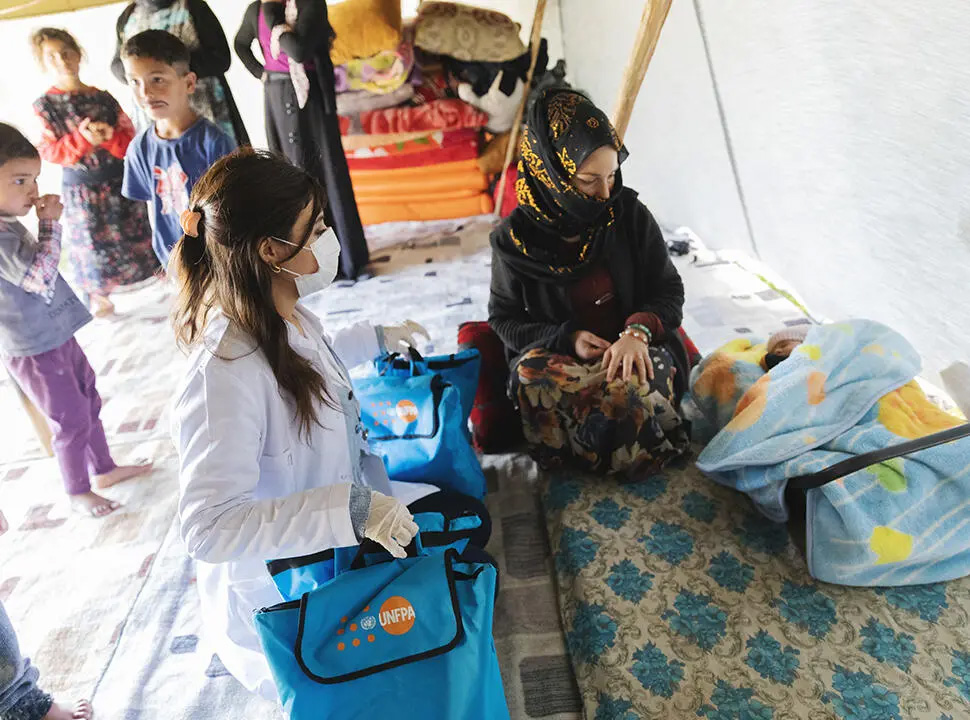
Mobile teams have also brought maternity services, including postnatal check-ups, to the camps.
Cahide gave birth shortly before the earthquakes struck. After being displaced, she arrived at a temporary camp in Şanlıurfa, where she was provided with a tent and received a medical check-up and maternity kit.
Across Türkiye and Syria, 60 mobile teams and 60 static clinics provide reproductive health and protection services, including emergency obstetric care, to some of the hardest-to-reach women and girls.
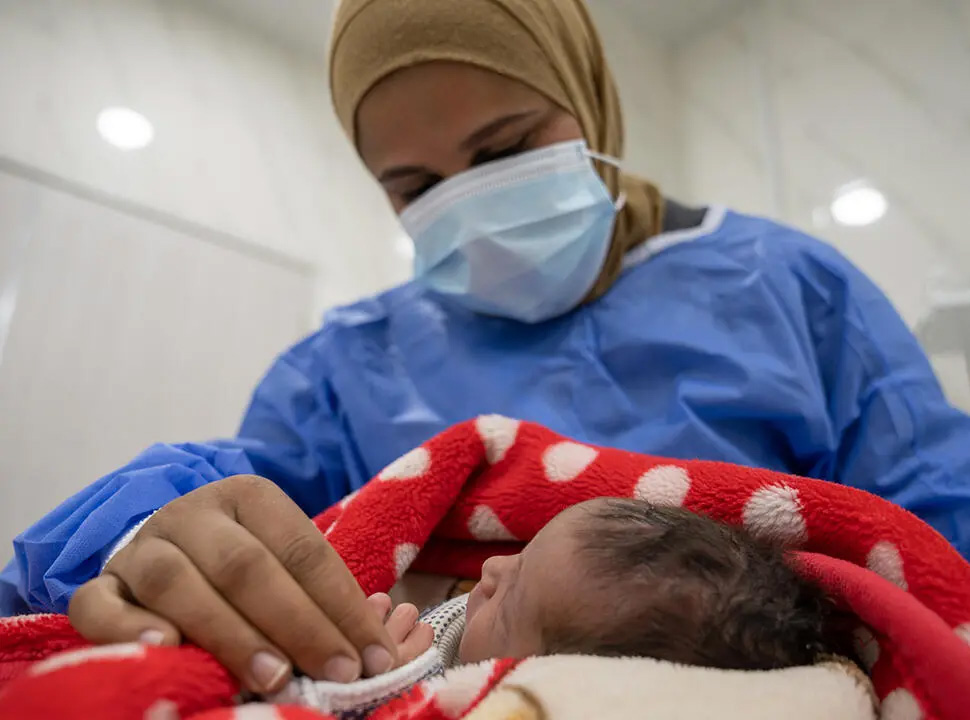
Baby Hala was born at Idlib Maternity Hospital in Syria. Her mother, Fatima, went into labour early.
“There are premature births due to anxiety, terror and psychological exhaustion that pregnant women experienced because of the earthquake,” says midwife Suad Muhiy-Aldeen. “There are cases of children with a very low weight.”
Hala was monitored in an incubator for the first few days of her life and thankfully now is healthy.
UNFPA-supported facilities have supported more than 1,350 safe deliveries and 400 C-sections in north-west Syria since the earthquakes.
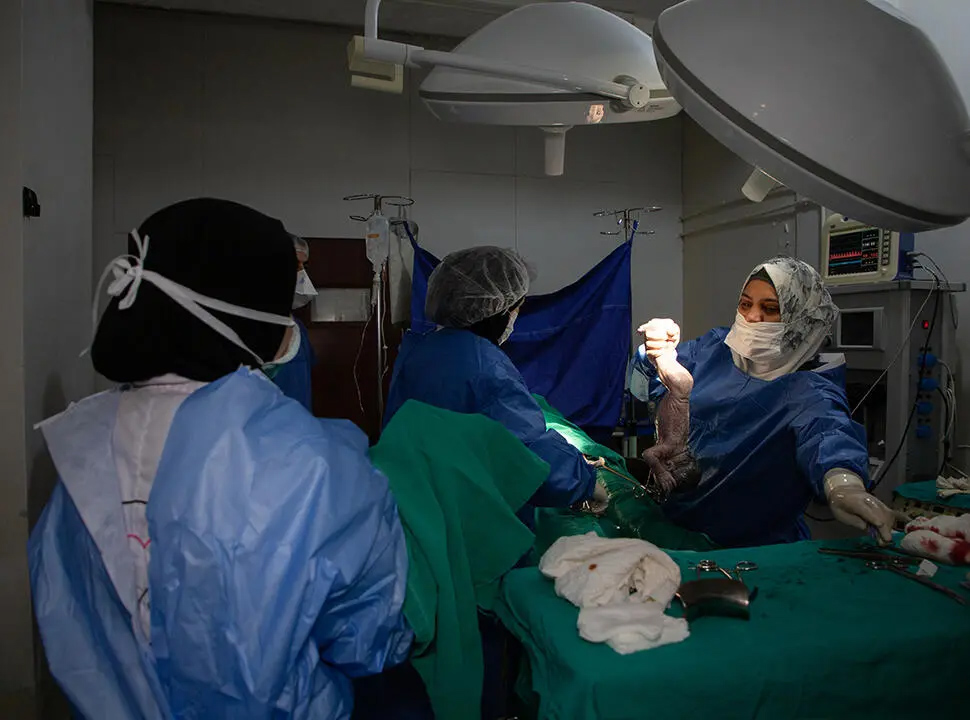
Six days after the earthquakes, in the countryside around Aleppo, Syria, Khawla gave birth to quadruplets, who were all delivered safely at Al Fardous Hospital in Daret Azza.
Dr. Bushra Al-Khattab, who was trained by UNFPA, performed the Cesarean section.
As part of an inter-agency response, equipment and supplies have been delivered to health facilities, including equipment for C-sections.
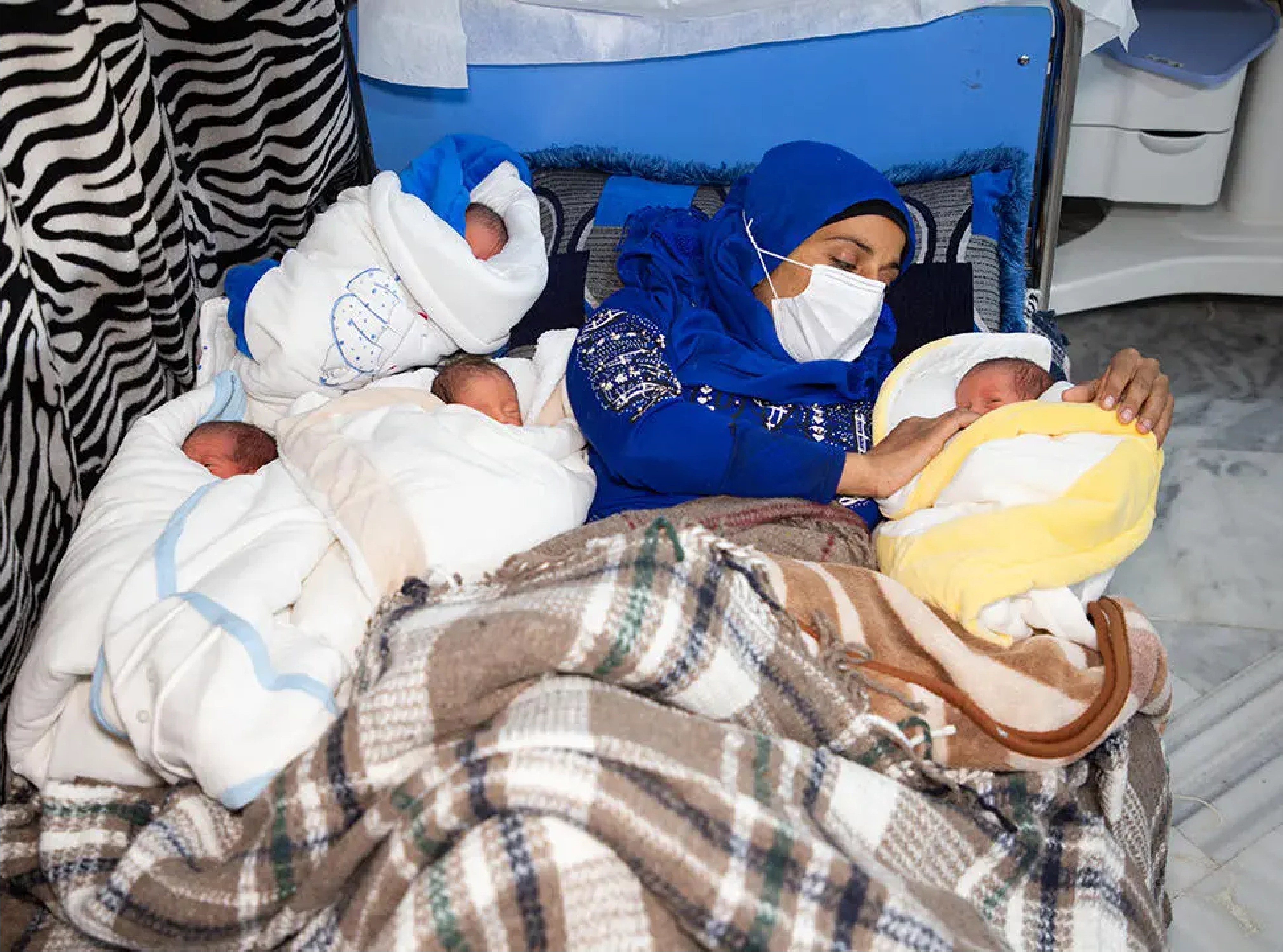
“My joy is indescribable,” says Khawla. “I received services in this wonderful hospital for free. I thank the organization, the hospital and the medical staff for the services they provided me with and the warm welcome.”
The 25-year-old mother and her two older children, who are two and three years old, had been displaced by the earthquakes before she gave birth to her quadruplets. Khawla will be returning to tented accommodation – now with six children – and with uncertainty about what the future holds.
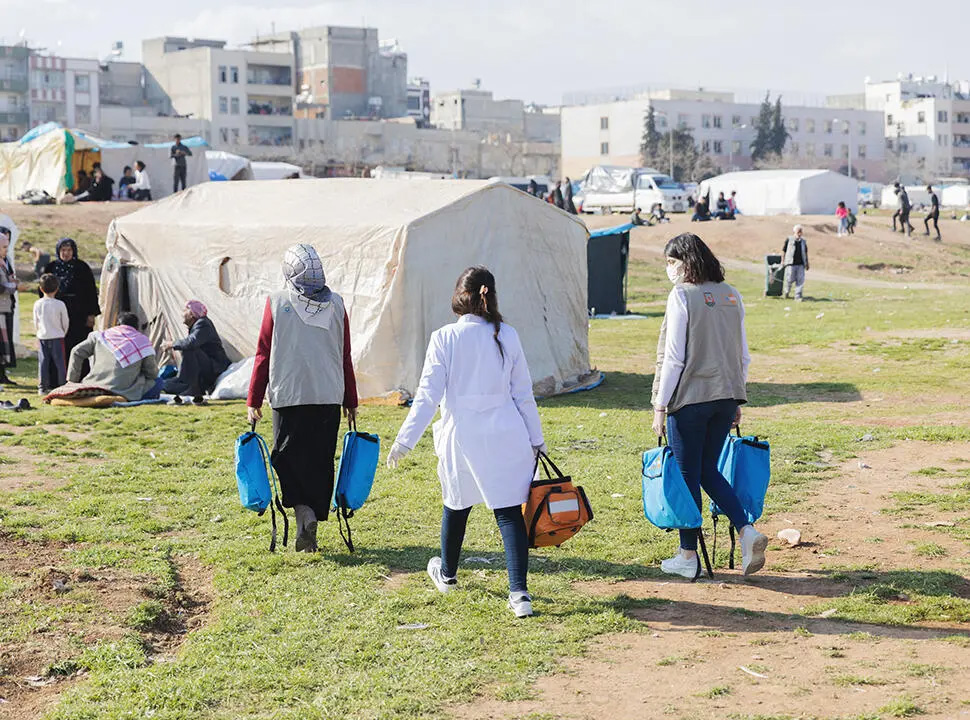
The immediate rescue efforts may be over, but there is still so much more that can and must be done.
With more clinics, mobile health teams, safe spaces and supplies, UNFPA can reach every woman and girl in need, but funding appeals for Türkiye and Syria remain woefully under target.
With additional funding, UNFPA will do whatever it takes to make sure that women affected by the earthquakes can give birth safely, manage their own reproductive choices, and live free from violence.

